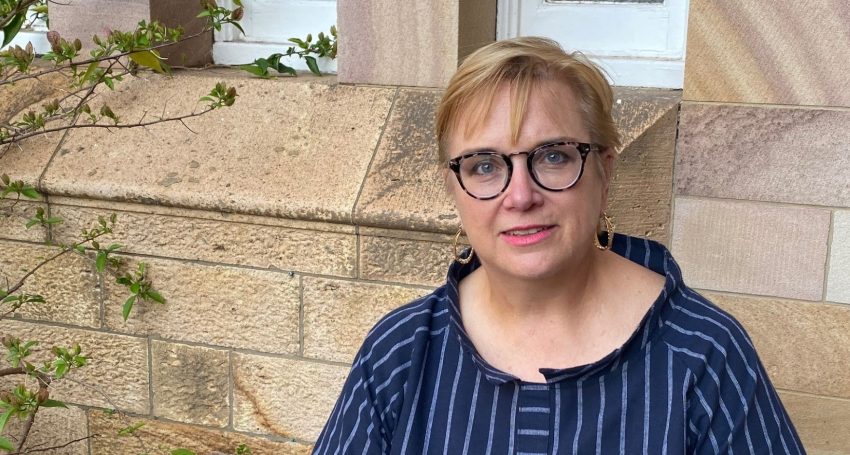ACSQ Domestic and Family Violence Working Group welcomes legislative reforms to strengthen Queensland’s response to coercive control
News
The ACSQ’s Domestic and Family Violence Working Group has welcomed the first round of legislative reforms to strengthen Queensland’s response to coercive control, which were introduced into Parliament on Friday

The Anglican Church Southern Queensland’s Domestic and Family Violence Working Group has welcomed the first round of legislative reforms to strengthen Queensland’s response to coercive control, which were introduced into Parliament on Friday.
The Domestic and Family Violence Protection (Combating Coercive Control) and Other Legislation Amendment Bill 2022 will strengthen laws to address the patterned nature of coercive control.
The Bill will also limit the ability of perpetrators to further traumatise victims during the court process.
The Bill proposes relevant legislation amendments to:
- modernise and strengthen the definition of stalking in the Criminal Code
- broaden the definition of domestic and family violence to refer to a “pattern of behaviour”
- strengthen the court’s response to cross application for protection orders, to ensure the person most at risk is being protected
- strengthen the court’s consideration of previous domestic violence history.
Chair of the Anglican Church Southern Queensland (ACSQ) Domestic and Family Violence Working Group, The Rev’d Gillian Moses, said that the new Bill is an important step in strengthening the state’s domestic and family violence legal framework.
“Both Anglicare Southern Queensland and the ACSQ working group made representations to the consultation around coercive control and it is encouraging to see that the Queensland Government is taking steps to implement some of the outcomes of that consultation,” The Rev’d Moses said.
Advertisement
“General Synod’s research project on family violence reported that ‘Although unintended, Christian teachings sometimes contribute to and potentially amplify situations of domestic violence’, including coercive control, which is mentioned specifically in the report.
“The ACSQ, through its adoption of the report’s ‘10 Commitments for Prevention and Response to Domestic and Family Violence in the Anglican Church of Australia’, is committed to actions and culture change that challenge all kinds of domestic and family violence, including coercive control.”
The Bill directly addresses several key recommendations by the Women’s Safety and Justice Taskforce first report, Hear her voice.
To support this important work, the Queensland Government has announced a $363 million package of reforms.
The ACSQ Domestic and Family Violence Project Officer, Jennifer Clark, said that it is important for our Diocese and the wider community to understand what coercive control is, including its impacts.
“The Hear her voice report, which was produced in 2021 by the Queensland Women’s Safety and Justice Taskforce and chaired by the Honourable Margaret McMurdo AC, made many recommendations to enhance responses to violence against women in Queensland,” Ms Clark said.
Advertisement
“Most importantly, the Taskforce recommended that a new offence of coercive control be implemented, and this Bill is the first stage of this process.
“Coercive control is still a relatively new term, and Justice McMurdo’s defines it as ‘a pattern of deliberate and rational behaviour designed by one person to control another person within a personal relationship. This is done by causing the victim to fear for their, or someone else’s, safety. The misconception that only physical violence is domestic abuse is so entrenched that coercive control victims themselves often do not realise they are victims.’
“Coercive control is a concept that our Diocesan community will learn more about as the Church more deeply embraces the ‘10 Commitments’ and seeks ways for these commitments to be visible in our parishes and agencies.”
Attorney-General and Minister for the Prevention of Domestic and Family Violence, Shannon Fentiman, said Queensland has taken the first significant step in combating non-physical forms of domestic violence.
“These important reforms lay the foundation for the passage of a standalone offence of coercive control next year,” Minister Fentiman said.
“The Taskforce stated very clearly that system-wide reform was needed before any new coercive control offence came into effect.
“These laws pave the way for the introduction of a Bill to establish a criminal offence of coercive control before the end of 2023.”
In addition to the reforms recommended by the Taskforce, the Bill will also amend the Criminal Code to modernise and update certain sexual offence terminology.
Specifically, it replaces the term “carnal knowledge” and changes the title of the offence “Maintaining a sexual relationship with a child” to “Repeated sexual conduct with a child”.
These reforms were developed following targeted consultation with domestic, family and sexual violence stakeholders, as well as the legal profession.
The Bill will be referred to the Legal Affairs and Safety Committee for review.
Note from The Rev’d Gillian Moses, Chair the ACSQ Domestic and Family Violence Working Group: The Anglican Church Southern Queensland (ACSQ) is committed to promoting and supporting a safe environment for all. Domestic and family violence is unacceptable. We offer pastoral care to victims of domestic and family abuse. The ACSQ is part of the Queensland Churches Together Joint Churches Domestic Violence Prevention Project (JCDVPP), which publishes resources for clergy and lay people.
If you are in immediate danger, call 000 for police or ambulance help. For a list of helplines and websites available to women, children and men, visit this page on the Queensland Government website.






